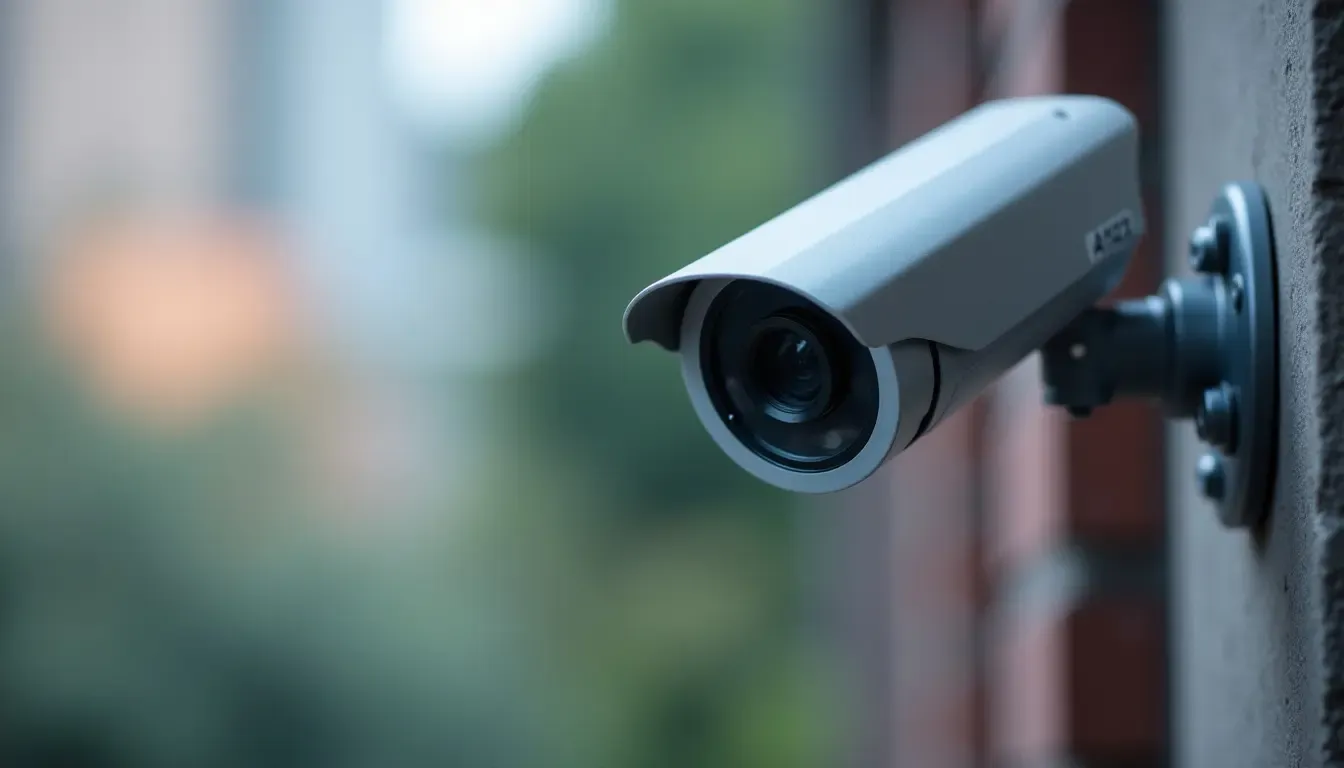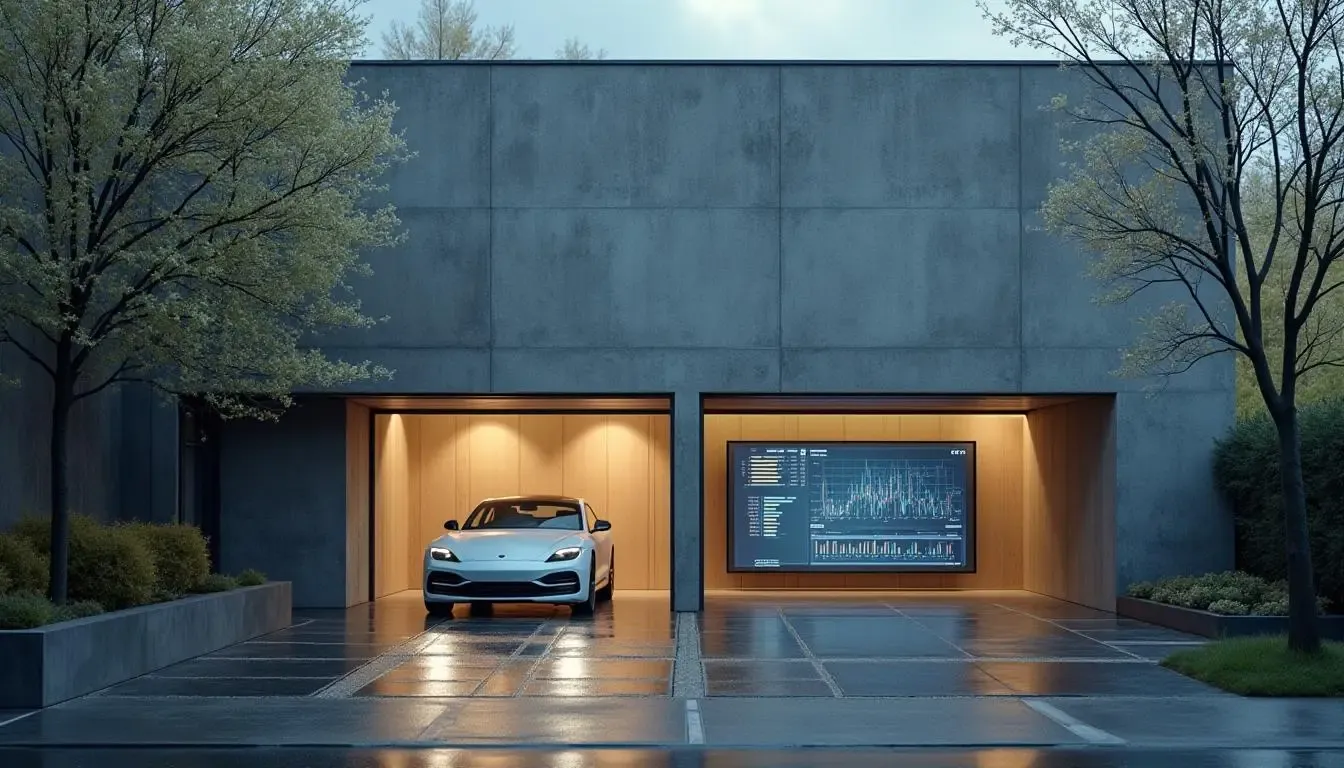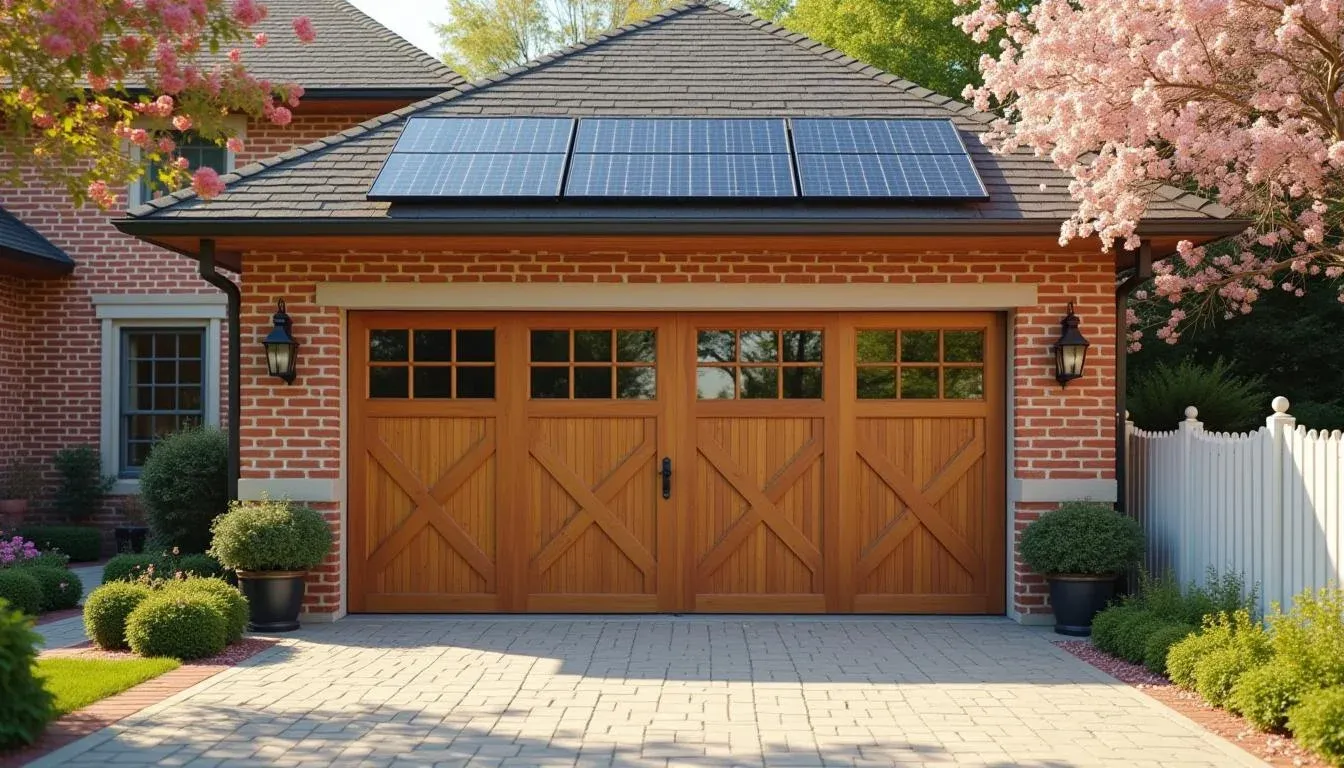How to Protect Your Garage Door from Freezing Temperatures This Winter
Published: Feb 12, 2025
Your garage door is usually the largest entryway of your house, and if it is subjected to poor conditions, it may develop several issues that reduce its lifespan and functionality. To avoid costly repairs and ensure your garage door works well during the winter, it is essential to prepare it for the season.
You may protect your garage door from the effects of freezing by carrying out a process called 'winterizing' on the door, the opener, and the seals around the door. Let’s start!
Understanding the Impact of Cold Weather on Your Garage Door

Cold weather can cause several problems for garage doors. Plastic parts can become brittle, and metal components may contract. There is a possibility that the door will be harder to open and close if the lubricant on moving parts hardens. Your garage may become uncomfortably chilly due to cold drafts that can penetrate in through an ill-fitting door.
A less obvious issue is the impact on the garage door opener. Does cold weather affect garage door openers? Yes, it certainly does. Cold temperatures can make your opener's components, such as gears and motors, less efficient. However, can cold weather affect garage door opener mechanisms, you ask? Absolutely. The motor may struggle to operate, and in extreme cases, it could even stop functioning.

Preparing Your Garage Door for Winter: What You Need to Know
Preparing your garage door for winter is a reliable way to avoid problems when the temperature drops. First, try to identify the following signs of wear or the need for replacement – check for any cracks or dents on the panels. The first thing to check is the rollers to ensure that they are in the right position and that there is no dirt on the tracks.
It is advisable to clear the tracks whenever you live in an area where there is frequent occurrence of snow or ice on the ground. Also, it will be important to ensure that the seals are okay and there is no obstruction on the doorway so that your garage door does not freeze in the process. In cold weather it is very important to have a garage door that operates smoothly and this is one of those situations when sudden failures are really very annoying.
Garage Door Insulation: A Key to Winter Protection

Keeping your garage door insulated is one of the most effective ways of protecting it from very low temperatures. Garage door insulation helps to maintain a stable temperature inside your garage, preventing the door from warping or cracking due to the cold. It also helps keep the temperature inside your garage from fluctuating drastically, making it more comfortable and reducing heating costs.
The best insulation for your garage door depends on its material and design. Polystyrene or polyurethane panels are popular choices because they provide excellent thermal resistance. Insulating your garage door also improves energy efficiency, keeping your home warmer.

Checking and Maintaining Your Garage Door Seals
The other critical step involves inspecting and maintaining your garage door’s weather stripping. Garage door freezing to the ground can occur when cold, wet weather causes the rubber seals to become rigid and ineffective. Over time, seals wear out and crack, allowing cold air to seep into your garage. That’s why proper weatherstripping is critical to preventing the cold from entering your home, but it must be functional.
Ensure the bottom of the door has a seal. Also, check if any of the weather stripping is broken and needs replacement. Many of the effects of cold weather on your garage door
Lubricating Your Garage Door for Smooth Operation
The winter season can cause the lubricants to thicken and hence the door becomes difficult to open and close. To ensure all the components of your garage door are running well, particularly during the chilly seasons, it is advisable to grease your doors moving parts.
Apply a silicone-based or a specialized oil used for the garage door on the rollers, hinges and springs. This will ensure your door opens and closes easily no matter how cold the winter gets. Regular greasing reduces the probability of other costly services tomorrow due to wear and tear.
The Role of Your Garage Door Opener During Cold Weather

Garage door openers are temperature sensitive. Internal components of your garage door opener can slow or even halt when exposed to very low temperatures. The opener may struggle or move slower due to internal thermal regulation systems.
A tiny, temperature-sensitive component in a garage door opener may freeze and cause the door to stop working properly. You can help avoid this if you keep the opener maintained and ensure the motor is greased and free from debris. Also, if you live in an area that has very low temperatures consider buying a garage door opener that has a self-heating mechanism.

When to Call a Professional
Different issues may arise even if you are maintaining the doors properly during the winter months. Any changes, strange sounds, low performance, or inability to fully open or close, indicate that you need garage door service. It’s best to call a professional if you are convinced the cold is affecting your door’s functioning.
Preventing Your Garage Door from Freezing to the Ground
One of the most irritating issues during the winter is when your garage door freezes to the ground. This is mostly caused by moisture from rain or snow getting in between the door and the ground and then freezing.
To prevent this, ensure that your garage door’s bottom seal is well maintained. Additionally, clear the area around the bottom of the door of snow or ice regularly. If freezing continues to be a problem, a thin layer of silicone spray on the seals can prevent them from sticking.
How to Protect Your Garage Door from Ice and Snow Buildup
A buildup of snow and ice on your garage door can result in a number of problems, including door freezing shut or experiencing surface damage. Make sure there is no snow or ice around the door or the surrounding areas to avoid this. It is a good idea to remove snow from the tracks and door surface using a broom or a soft brush.
Think about applying a de-icing spray if the ice is difficult to remove. It forms a smooth, water-resistant barrier. You can also apply a coat of auto wax to the door's surface.
How to Troubleshoot Common Winter Garage Door Problems
Common problems include frozen springs and jammed openers, particularly in cold weather. Troubleshooting garage door opener problems caused by cold weather can be tricky, but knowing the signs can help. If your garage door is not opening, then, it may be caused by the opener motor or the sensor alignment. Check also that the tracks are clean and try to find out where it may be frozen or stiff.
If your door is sluggish, it may need lubrication or a simple adjustment to the springs or cables. If you're unsure, it's always wise to call in a professional.
Summing Up
You can prevent a number of problems and make sure your garage door runs smoothly throughout the winter by taking the appropriate safety measures and getting it ready for the cold. A little effort can make a big difference in the longevity and dependability of your garage door, from insulating it to keeping seals and lubricating its parts. You may rest easy knowing that your garage door is prepared to handle the difficulties of winter if you pay a little attention to detail.
In case of an emergency, Up & Down Garage Doors stands ready to assist you. Contact us if winter weather takes a toll on your garage door!
You may also like


